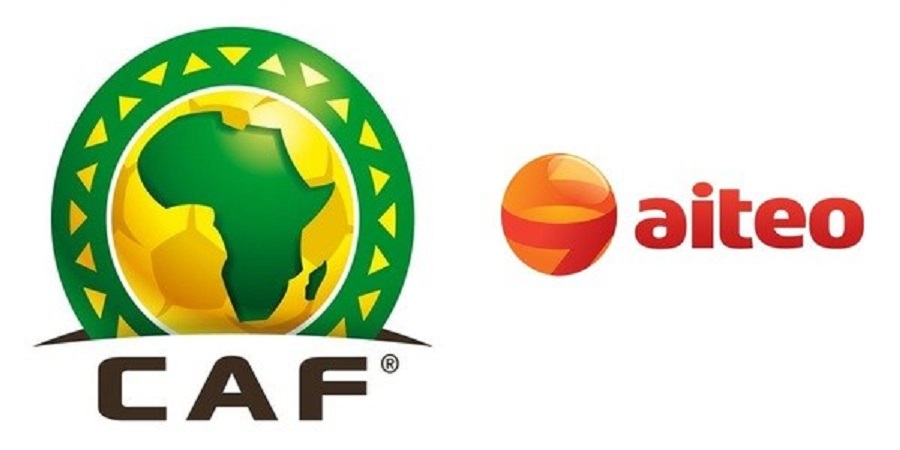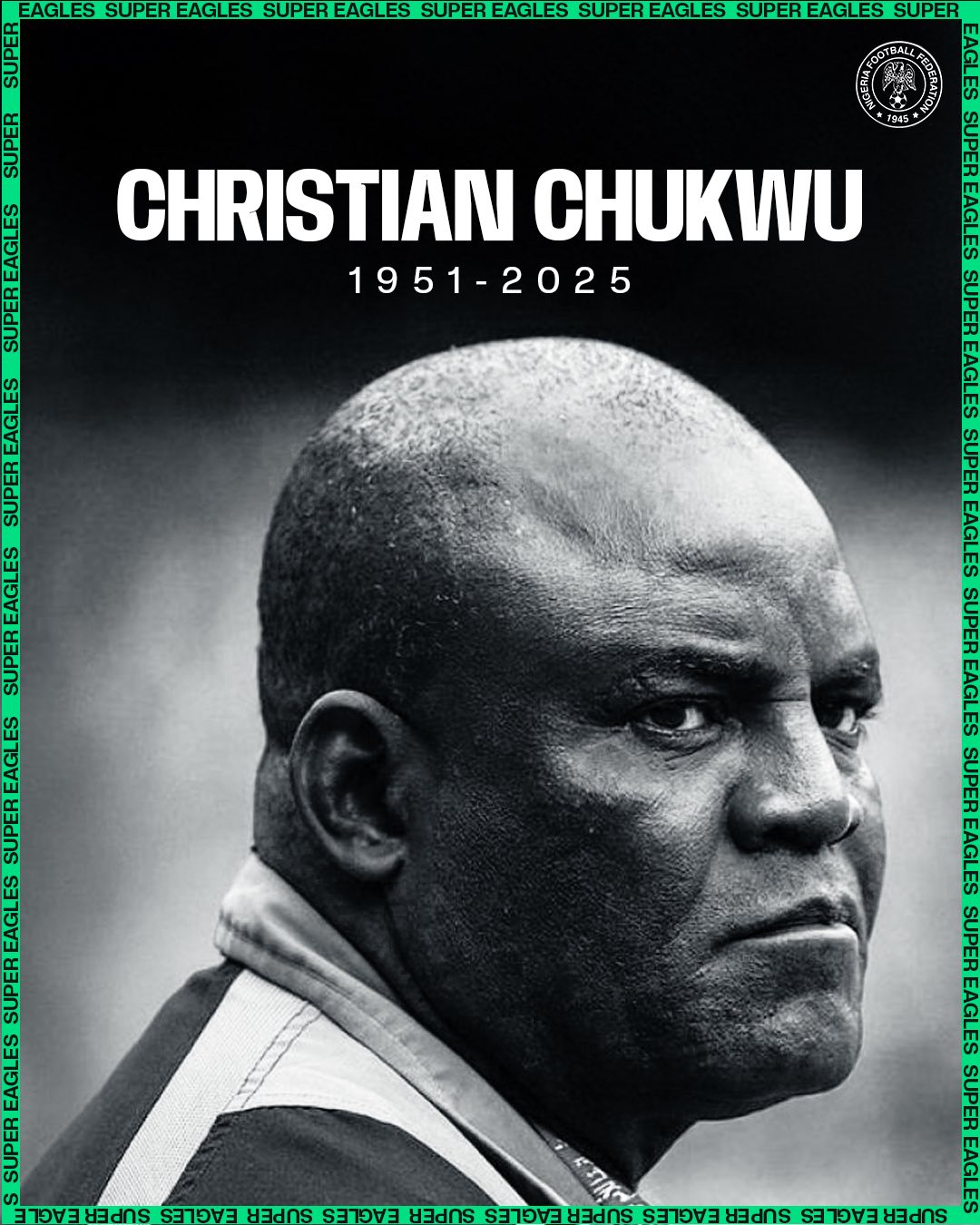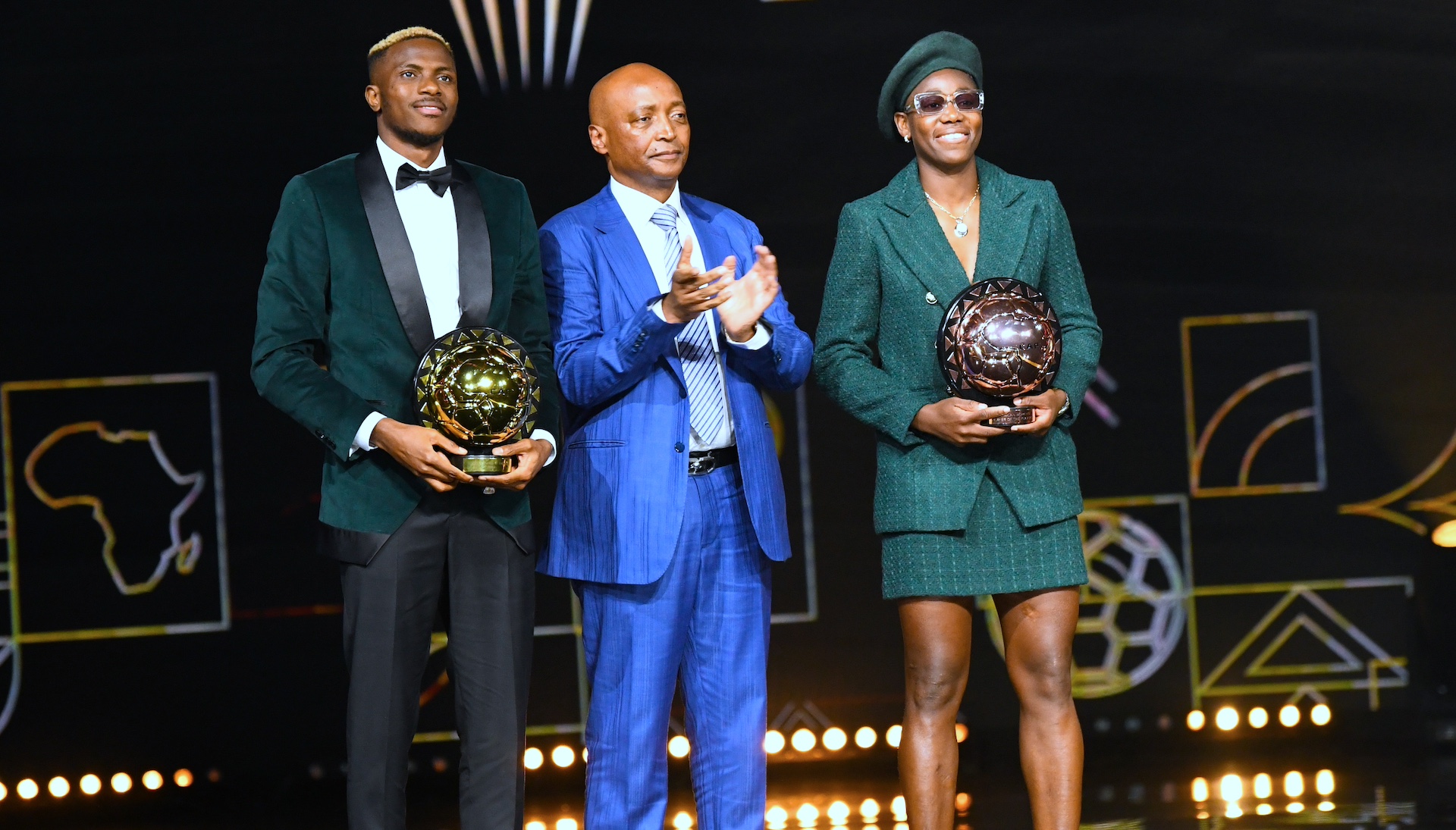Sports
Why Africa’s Young People Are Real Winners at CAF Awards

By Benedict Peters
Almost nowhere on earth is football followed as passionately as in Africa. It is loved by Africans from all walks of life across the continent. This week, I am giving the opening address at the Confederation of African Football (CAF) Awards in Accra, Ghana. This has afforded me a good opportunity to reflect on Africa’s relationship with football and how it can help deliver a brighter future for our young people.
I believe we need only look to the Liberian presidential election for a fine example of the transformative power of football. Against the odds, football legend and opposition candidate, George Weah was victorious and today, he is President-elect of Liberia, one of Africa’s most popular countries. Weah’s perseverance in the face of an initial unsuccessful attempt is a testament to the endurance football teaches.
Before he was a Presidential candidate, of course, Mr Weah was an outstanding footballer whose career spanned great clubs like Paris Saint Germain, Marseille, Monaco and even English Premiership giants like Chelsea and Manchester City.
A striker of fearsome reputation, Weah has been described as the greatest footballer to emerge from Africa, confirmed in 1995 when he won both FIFA Footballer of the Year and the highly valued Ballon d’Or. Over a three year period, in 1989, 1995 and 1996, he claimed the top prize of African Footballer of the year, crowning that in 1996 with the African Footballer of the Century award.
The power of a footballer entering frontline politics cannot be overstated, for two reasons. First, it shows that politics is accessible to all, to the ambitious individual who dares envisage a way he or she can contribute to their country’s future. Second, it makes politics interesting and relevant to young people. If our continent is ever to reach its full potential, then it is our young people who are going to deliver it.
Africa’s youth are already shaping today and redefining tomorrow with their creativity, passion and innovation. I believe that the greatest gift that our generation can give them is to continue to provide platforms for aspiration, recognition and inspiration. But the idea of ‘opportunity’ or of ‘potential’ can be an abstract enough concept to adults never mind the younger generation, many of whom have been overlooked by the decisions of governments not to allow funds raised from investment to trickle down into stronger education systems, apprenticeships and advancement.
In football, the notion of opportunity is far from abstract. Football has always been a unifying factor and a great tool for promoting integration and development. But more than that, it is a global currency, a language spoken in the United Kingdom as much as in Brazil, China and Nigeria. And in football we see, most tangibly, the bold young role models and ambassadors of Africa who are inspiring others and have set the pace in their pursuit of excellence.
Of course, we must be careful not to set false expectations. Football is affected by the same attrition rate that applies to other sports in that very many are called but few ultimately make the dizzy heights that many dream of. President Barack Obama pointed out that youth in the United States may have good role models for economic empowerment and entrepreneurship in the music industry, but that it was unlikely that each child would grow up ‘to be the next Lil Wayne’, so children must also work hard in school. The same can be said of football: not all of our children will grow up to be the next George Weah, Abedi Pele, Dider Drogba or Jay Jay Okocha, but these role models still offer young people a concrete example of the hard work that goes into the pursuit of excellence.
The example of football goes far beyond the 22 men or women who stand on the pitch for 90 minutes each week. I know this because I have seen the extraordinary depth of support services that go into creating the finished product of a football match, and the transformative role they play when properly looked after.
Over the last year, Aiteo has been supporting sports development in Nigeria, leading a partnership agreement with the Nigerian Football Federation (NFF) to provide financial Support to the technical team of Nigeria’s national team for the next five years. In the months since, Nigeria has won more games than they have lost and has qualified for the 2018 FIFA World Cup. Aiteo has also made significant contributions towards developing the local football by underwriting the costs associated with organising the Federation Cup, Nigeria’s equivalent of the English FA Cup, helping smaller teams grow and improve on the national stage.
With coaching roles, training roles, marketing, advertising, commercial partnerships and merchandising roles all part of the infrastructure of a newly-global Nigerian football team, no child need only grow up to be the next Alex Iwobi if they are to benefit from the transformative power of football. If a footballer can become the head of a nation, they why not a football coach, a medic or a marketing executive?
So, when I stand on the stage this week to open the CAF Awards, the winners will be very clear to me before the awards have even been handed out: the true winners will be every young person who sees that event; sees that the eyes of the world are on Africa and that a future for each one of them exists in which they can go beyond their school, their hobbies, their parents, and truly embrace their potential. Because the way we conceive the future sculpts the present.
Benedict Peters is the Executive Vice President of the Aiteo Group (www.AiteoGroup.com)
Sports
AI and Online Betting: How Smart Tech is Changing the Aviator Game

The digital revolution has impacted numerous industries, and online betting is among them. In Nigeria, technology is changing the manner in which gamblers engage in popular games such as Aviator. This crash game has caught the attention of the majority of bettors with its simple and thrilling gameplay and high possibility of generating winnings with massive multipliers. With the advancement in artificial intelligence, new horizons to the Aviator game in Nigeria are being attained by improving user experiences and creating more intelligent ways of playing.
Understanding the Aviator Game Basics
The Aviator game in Nigeria has become a huge success among gamblers seeking thrilling betting experiences. Spribe developed the game in 2019, and it operates on a straightforward premise: an airplane takes off and goes higher as a multiplier increases. Bettors must cash out before the plane flies away to receive their winnings.
With its incredible 97% RTP rate and maximum multipliers of x1,000,000, it’s no wonder that it has become so popular. It’s entirely legal to play in Nigeria and offers minimum and maximum bet limits of 100 NGN and 100,000 NGN, respectively, making it accessible for those with tight pockets and those who prefer to wager heavily.
How AI is Transforming Player Experience
Artificial intelligence has completely changed player interactions with any online game. Smart algorithms now learn about players’ behavior to provide personalized gaming experience based on users’ unique playing habits and preference. Maybe one of the greatest enhancements lies in user interfaces. AI-powered interfaces can learn from what users do and automatically adapt based on their frequency of interaction on a specific element, highlighting features interacted with by users most frequently. This provides a special type of user experience that feels customized personally for them.
In addition, AI has enhanced the social aspect of the game by promoting more meaningful interaction between players. Natural language processing-enabled real-time chat features facilitate ease of communication, while automated translation systems show messages into native languages for international players.
Best Online Betting Sites in Nigeria
Nigerian players have several reputable platforms to choose from when looking to enjoy the Aviator game. These sites combine AI-driven features with generous bonuses to provide optimal gaming experiences.
- 1xBet stands out with its welcome bonus of up to 562,026 NGN and uses AI to customize bonus offers based on player activity.
- MSport offers up to 500,000 NGN for new players and implements machine learning algorithms that recommend games aligned with your preferences.
- Other top platforms include 1Win with its 250,000 NGN welcome package, Betway offering similar bonus amounts with AI-enhanced security features, and BetKing providing up to 200,000 NGN along with 50 free bets for Aviator after spending 50,000 NGN.
Each of these betting sites leverages technology differently, but all aim to create safer, more personalized experiences for gambling enthusiasts.
Aviator Free Bet Opportunities and Promotions
Getting started with the game doesn’t always require risking your own money. Many Nigerian betting platforms offer various promotions to attract new players and reward loyal customers. AI has revolutionized how these promotions are distributed. Instead of one-size-fits-all offers, platforms now use machine learning to analyze player behavior and trigger personalized promotions at optimal moments. This might mean offering free bets when a player typically logs in or providing bonuses tailored to their usual betting patterns. BetKing’s offer of 50 free bets for players after spending 50,000 NGN exemplifies how platforms are creating structured paths toward free play opportunities. These promotions provide excellent ways to experience the game with reduced risk while learning its mechanics.
Smart Strategies: Using Technology to Improve Winning Chances
While Aviator remains a game of chance with outcomes determined by random number generation, technology is helping players implement strategies more effectively. AI programs can now track gaming patterns and provide analysis that might not be obvious to human players.

Traditional systems like Martingale, Reverse Martingale, and Labouchere are being replaced by technology. Players can be helped with these systems using apps and browser extensions that automatically calculate the optimal bet sizes based on previous results. Yet, it’s important to note that no strategy can ever guarantee success. The outcomes of the game are still random, and AI tools can only be seen as helpers, not predictors of future outcomes.
Online Betting Tips for Success in Aviator
Success in Aviator requires more than just luck. Here are some betting tips to improve your experience:
- Start with the demo mode to understand game mechanics without risking real money
- Utilize banking methods with instant transactions for quicker cashouts during winning streaks
- Set betting limits within the platform’s responsible gambling tools
- Consider using dual betting features to hedge your bets
- Observe game statistics but remember outcomes remain random
Remember that consistent small wins often add up to more than occasional large ones. Many successful players cash out at lower multipliers (1.5x-2x) rather than chasing massive multipliers that rarely materialize.
Conclusion
The symbiosis of AI and online betting has created new possibilities for games like Aviator. From personalized experiences and smarter strategies to enhanced responsible gambling tools, technology is making this popular game more engaging, accessible, and safer. As players navigate this evolving landscape, the key is balancing enthusiasm for technological innovations with responsible play. By embracing both aspects, Nigerian bettors can enjoy the excitement of online betting while benefiting from the new possibilities that smart technology provides.
Sports
NFF Mourns Christian Chukwu

By Modupe Gbadeyanka
The Nigeria Football Federation (NFF) has expressed sadness over the demise of the former coach of the Super Eagles, Christian Chukwu, fondly called Chairman.
The 1980 Africa Cup of Nations’ (AFCON)-winning captained died in the morning of Saturday, April 12, 2025, at the age of 74 in Enugu, his home state.
In a statement today, the football governing body of Nigeria said, “We have lost a good and great man. Chukwu was the definition of a strong, dedicated and disciplined leader on and off the field. He was not nicknamed ‘Chairman’ for nothing. He embodied strength, vision and consistency.”
In the statement signed by its General Secretary, Mr Mohammed Sanusi, the NFF further said prayed that, “The Almighty will grant his soul eternal rest, and also grant the family and friends he has left behind, and Nigeria football’s fraternity the fortitude to bear this big loss.”
Christian Chukwu was born on January 4, 1951, enjoyed an imposing presence and authority in front of the rearguard at both club (Enugu Rangers) and country.
He was in the Nigeria senior team that won bronze medals at the 1976 and 1978 AFCON finals in Ethiopia and Ghana respectively, before leading the squad to glory on home soil in 1980. He was named Player of the Tournament.
The deceased coached his darling club, Enugu Rangers (he played for only one club in his career) and then coached the senior national team of Kenya, nicknamed the Harambee Stars.
He was named Head Coach of the Super Eagles in 2002, and led the team to finish third at the 2004 AFCON finals in Tunisia.
His death comes exactly 20 days after the 45th anniversary of the 1980 AFCON triumph. Before him, other members of the squad that had passed on, are goalkeepers Best Ogedegbe and Moses Effiong, defenders Okechukwu Isima and Tunde Bamidele, midfielders Aloysius Atugbu and Mudashiru Lawal, and forward Martins Eyo.
Sports
JUST IN: Former Super Eagles Coach Christian Chukwu Dies at 74

By Dipo Olowookere
A former coach of the Super Eagles, Christian Chukwu, has died at the age of 74, reports reaching us stated.
The former Green Eagles captain was said to have passed away on Saturday.
The deceased captained the Nigerian national football team that clinched the country’s first Africa Nations’ Cup (AFCON) trophy in 1980.
He later led the team to the 2004 African Cup of Nations as a coach, reaching the semi-finals. He managed the team from 2003 to 2005 before he left.
At the time of filing this report, details surrounding his death were sketchy.
The Nigeria Football Federation (NFF) had yet to comment on the development.
Details later…
-

 Feature/OPED5 years ago
Feature/OPED5 years agoDavos was Different this year
-
Travel/Tourism9 years ago
Lagos Seals Western Lodge Hotel In Ikorodu
-

 Showbiz2 years ago
Showbiz2 years agoEstranged Lover Releases Videos of Empress Njamah Bathing
-

 Banking7 years ago
Banking7 years agoSort Codes of GTBank Branches in Nigeria
-

 Economy2 years ago
Economy2 years agoSubsidy Removal: CNG at N130 Per Litre Cheaper Than Petrol—IPMAN
-

 Banking2 years ago
Banking2 years agoFirst Bank Announces Planned Downtime
-

 Sports2 years ago
Sports2 years agoHighest Paid Nigerian Footballer – How Much Do Nigerian Footballers Earn
-

 Technology4 years ago
Technology4 years agoHow To Link Your MTN, Airtel, Glo, 9mobile Lines to NIN














